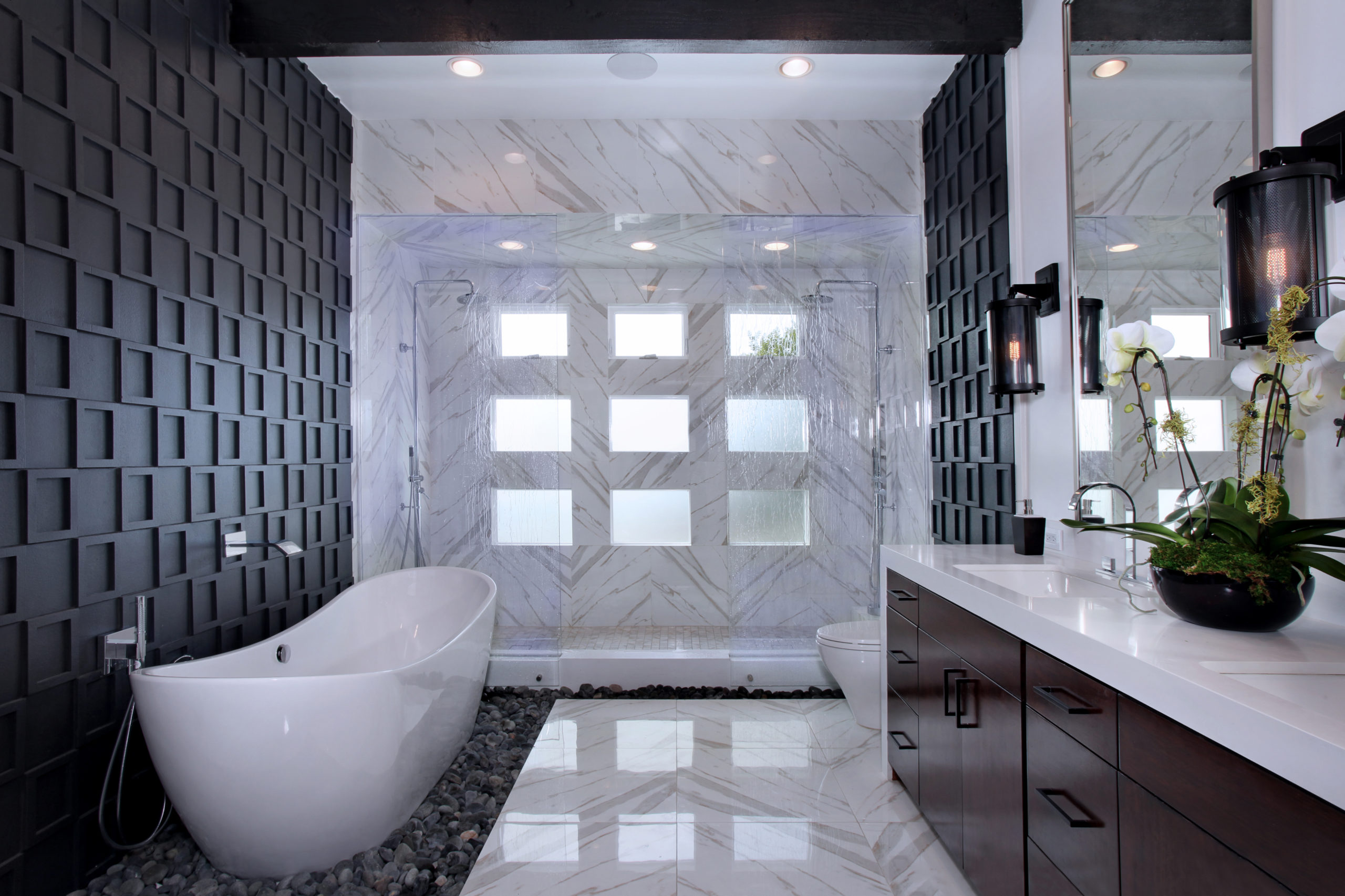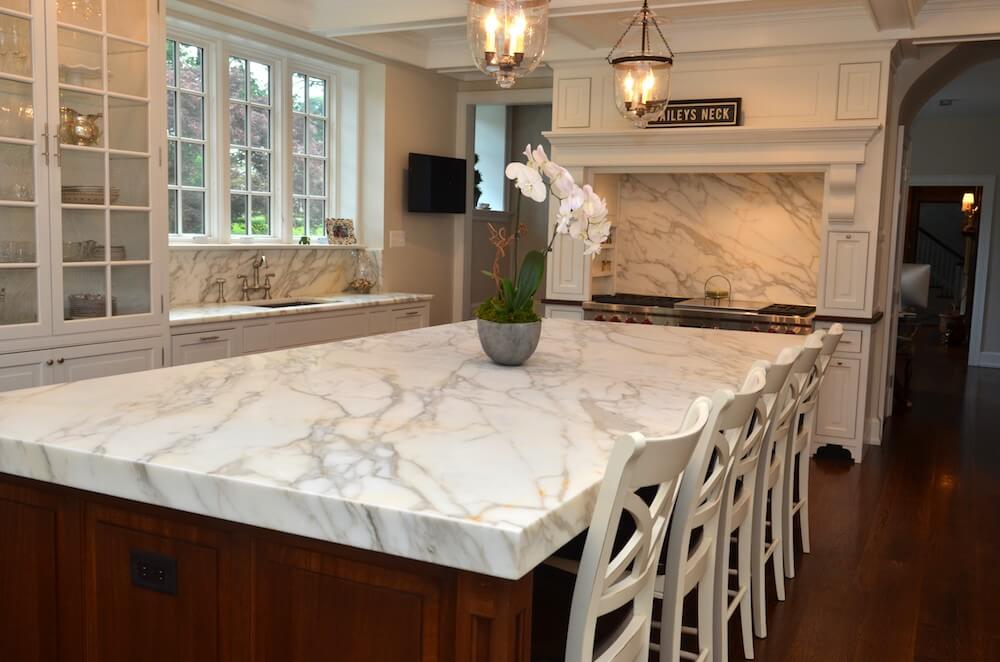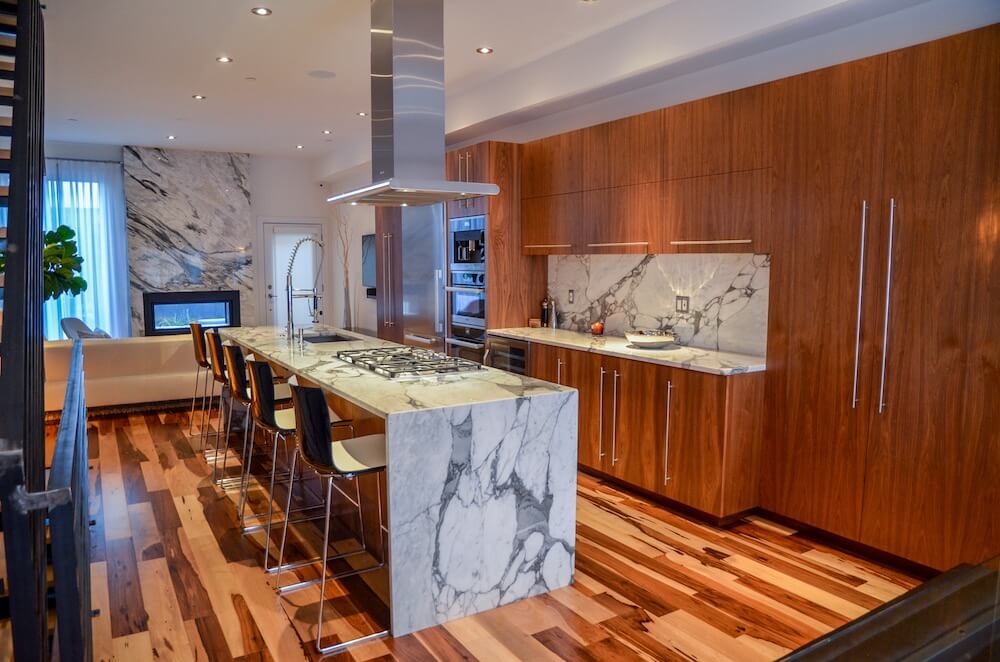The advancements in outdoor kitchen design allow homeowners a number of ways to imagine and design the perfect setup. Choosing the right material is the first step in planning that dream kitchen that will last for as long as you own your home. The number one issue when choosing your material for an outdoor kitchen paradise is durability. Here at Colonial Marble & Granite we have years of experience in all phases of the design and installation process and can help you choose what is right for your vision.
Granite
The top material for an outdoor kitchen countertop is granite. This stone’s durability can stand up to many outdoor elements and conditions. With the huge variety of colors and finishes, granite is a favorite for outside cooking stations. Darker colors can become hot to the touch in direct sunlight so you may need to choose a lighter color if you don’t have a shaded area for your countertops when deciding on outdoor kitchen granite colors.
From the heat of the sun to the heat of a hot pan, granite withstands even the most intense elements with ease. To keep your granite looking its pristine and natural condition, be sure to seal your granite to protect against mold, mildew, and stains at least once a year, maybe twice. Read more about why it’s important to seal granite countertops here.
Marble
Marble can also be used for outdoor kitchen countertops, but it’s not highly recommended. While it is a strong stone, it is also very porous and can stain easily. If you do want the elegance of marble in your outdoor kitchen, be sure to seal it often.
Soapstone
For some, soapstone is a perfect stone for an outdoor countertop. On top of being very dense, it is nonporous and doesn’t need to be sealed to protect against stains. It also holds up to sunlight and rain better than most materials. One drawback of soapstone is that it is softer than other stones and care must be taken when using knives and other sharp items on the material. With a little sandpaper, most of these small nicks and scratches can be buffed away. Due to its naturally dark color, direct sunlight can make the surface hot, so finding an area with some daily shade might be an option when looking to use this versatile material.
Porcelain Tile
Another nonporous material for outdoor use is porcelain tile. There are many advantages to porcelain outdoor tile, such as its heat and fade resistance, durability, and ability to hold up in different temperatures. Since porcelain can be produced into any color or finish, the design possibilities are endless. It can even mimic the look of natural stones which makes it an option for those looking for different price points.
Concrete
Concrete is both durable and flexible and can be set into nearly any shape, enabling it to fit any of your outdoor design needs. But one major downside is its tendency to crack. Direct sunlight could also become an issue for some colors, as they may fade or yellow. Sealing is extremely important for concrete due to its porous nature, and without a proper seal, bacteria and cracking can damage your concrete countertops. If designing a modern/industrial-style outdoor kitchen, concrete is an option but you might want to substitute with granite, quartzite or soapstone.
Whether you are looking to install a modern outdoor kitchen, or your style is more of a country outdoor kitchen, Colonial Marble & Granite can help design your ideal area from beginning to end.





